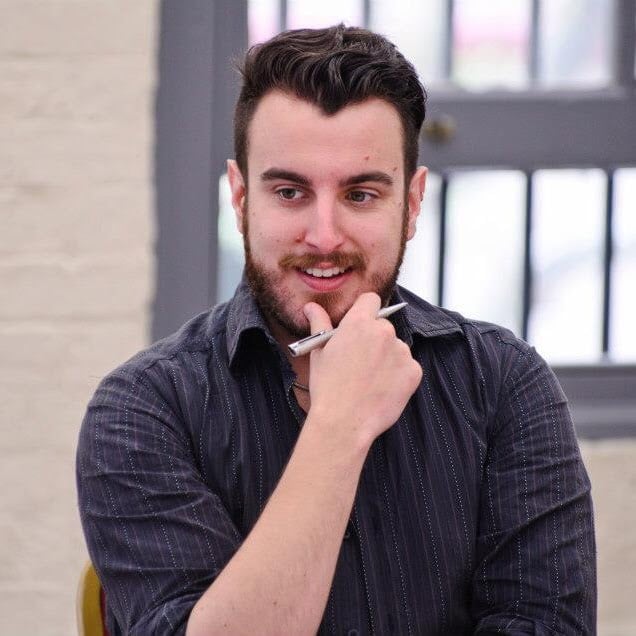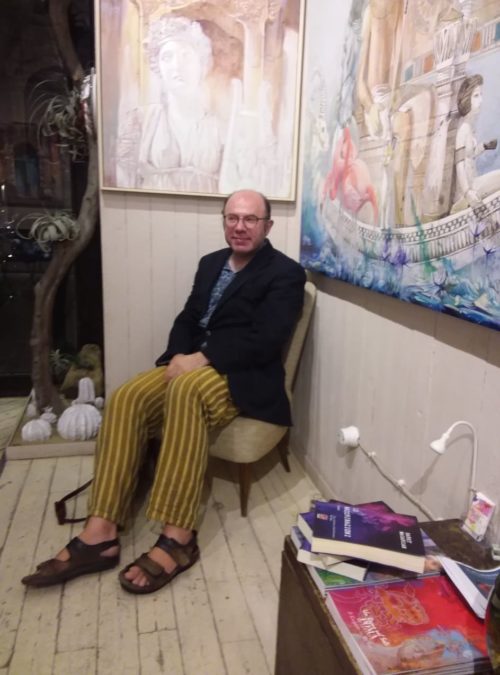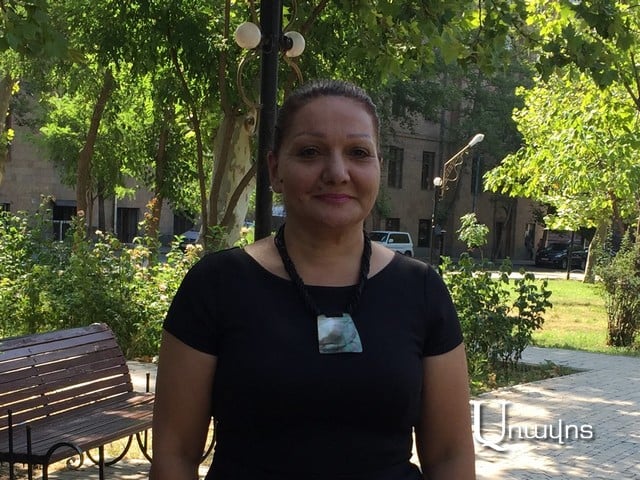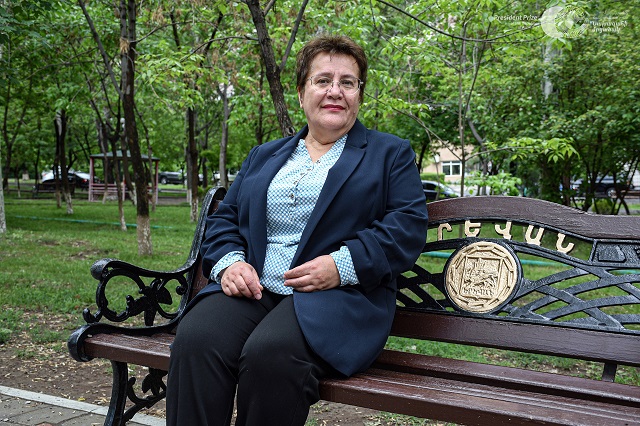The Armenian Mirror-Spectator. YEREVAN/MELBOURNE — John Kachoyan (born in Oatley, New South Wales, Australia) is a multi-award-winning freelance director, writer, script developer and teacher who works internationally in theatre, opera and screen. He’s skilled at conceiving, developing and realising stories across multiple genres and formats especially new work and adaptations from or for live performance.
He is currently literary manager at Australian Plays, on Film Victoria’s Key Talent Register, the Australian Writer’s Guild’s Pathways Programme and recently completed an advanced diploma in script editing and development at Australian Film Television and Radio School. He was formerly Co-Creative Director and CEO of multi-Green Room Award winning MKA: Theatre of New Writing and Director In Residence for Bell Shakespeare. John holds an MA (Advanced Theatre Practice) from the Royal Central School of Speech and Drama (RCSSD) and originally trained at the National Institute of Dramatic Art (NIDA).
He was a member of the Australia Council’s 2015 Emerging Leaders Development Programme and the inaugural Melbourne Lincoln Centre Director’s Lab. He spent 2007-2012 working with leading new writing theatres in London where he co-founded IronBark — producing the best Australian writing for UK audiences. After returning home, he founded Pub Plays with Currency Press presenting neglected Australian classics and was a Critical Stages Resident in 2013 before moving to Melbourne where he lives with his partner, son and Roxy the Staffy.
John is an accomplished public speaker and his writing has been published in Cream, Filmink and Dwell. He has taught at RSCCD, University of Sydney, Victorian College of the Arts, NIDA & Monash University and is currently developing an adaptation of Joan London’s critically acclaimed novel, ‘Gilgamesh’ for stage and screen.
Read also
John is privileged to work primarily on the lands of the Wurundjeri peoples of the Kulin Nation and the Gadigal and Guring-gai of the Eora Nation and pays respect to their Elders, past and present.
Dear John, I assume the world is mostly not aware about Australian dramaturgy. Do Australian playwrights limit themselves in Australian topics or also in universal subjects?
Australia has a rich (though sometimes not well-remembered) playwriting tradition. Dramaturgically, Australia mainly floats between of the European, UK and North American styles and our writers, when they have the budget and support to, tackle global or universal ideas. Australian play righting is bold, inventive and increasingly appreciated internationally. We are connecting more with Asia and diverse voices to de-colonize our theatre. The arts are in crisis here, with a hostile government and an indifferent public — so it can be a struggle to tell stories that are complex or difficult — but I think that’s changing — recognizing the diversity of the voices here. Of course also we also have a deep First Nations dramaturgy, that precedes all European presence by tens of thousands of years.
Your biography says that you love neglected classics.
Yes! One aspect of my work involves directing and reviving “neglected” classics — I think it’s easy for the canon to become staid and set. I love finding a work that has meaning and power and impact but may have been forgotten or under-appreciated and breathing life back into them.
Please tell us about Iron Bark Theatre Company you co-founded in London and specializing in new Australian plays. Is it common for Australian theater professionals to found similar companies in English-speaking countries aiming to propagandize the national dramaturgy?
IronBark was an amazing confluence of my other co-founders and fellow Australians, Zöé Caldwell, Nicola Samer and Tim Knightley — who were all in London at the same time I studied and then lived there for five years. We met and discovered a passion for our own stories and wanted to bring all these brilliant Australian works to a UK audience. We loved being able to connect the cutting edge work that was emerging out of Australia with London and often we able to welcome travelling writers to the city and expand everyone’s knowledge of what was happening in plays then — and yes, some national pride was involved!
Does it continue its activities?
No sadly not, we all moved on to other work and I moved back to Australia to work for the Bell Shakespeare Company as Director In Residence.
The Australian-Armenian community seems to be less known in the Armenian Diaspora. Please tell us about your family.
My father was born in Egypt and emigrated to Australia with his family aged 6. It was his father, my grandfather Aram Kachoyan, initially who continued some connection — telling us about the Genocide, but most other details have been hard to come by, lost in the fog of diaspora — and either unknown or unspoken. My father has done a lot of research in later years, reconnecting with relatives around the globe and expanding the family tree but it sadly still does not reach back more than two or three generations.
Because of my background, we maintain a suite of traditions borrowed from Egyptian, Irish, Greek and Armenian traditions. I speak very little Armenian, to my continuing sadness. Culturally, I felt I discovered my own Armenianness, in music and song and image later in life — I think because as the second generation kid, the child of an immigrant, you have the luxury to ask about the old world, the old places. Perhaps my father and grandfather did not — but the cooking, food is what connected me mainly to Armenia as a child — and that’s one of my father’s talents.
Have you ever had any cultural or other contacts with the Armenians in the countries you lived — Australia, United Kingdom or Canada?
Yes, I always think of Saroyan’s idea about Armenians finding each other around the world. My grandfather’s side is mostly scattered around the world — and it was a joy to reconnect with them (in France, Canada and elsewhere) during previous travels. I have been supported in my studies and productions by other Armenians and shown more about my background because of these small adoptions — it seems to happen in every city I visit. I am in LA semi-regularly and ‘Armenia’ is more present there than Australia for sure — though obviously a complex idea.
Does having an Armenian family name seems something special to you?
Yes. It is a legacy and connection to something rich and deep — also a sadness perhaps that Armenians might carry with them — and it is always (especially in Australia) a conversation starter; “Oh where’s your name from?” For more as I have grown as an artist an increasing part of my work is concerned with memory, truth and trauma — so there are inheritances there. I feel Armenian in my art.
You made an adaptation of Joan London’s novel, Gilgamesh, which traverses from Australia to Soviet-era Armenia. It will be interesting to learn more about this project and also if you have had other Armenian inspirations.
Yes. I adore this novel, my version is currently being adapted for television. It traces an Australian girl who falls pregnant in 1930s Australia to an Armenian traveler, Aram Sinanien, and after having his baby out of wedlock, she decides to leave Australia to try and find him all in the lead up to the outbreak of World War II. Aram lost his entire family in the Genocide and the work traces the strings of grief, inheritances between child and parent and the search for a response to death. Australia and Armenia — so perfect for me. I also love the lead character, Edith, this ‘simple’ country girl from rural Australia who finds herself in a strange and foreign Armenia — it appeals to my wanderlust and yearning for an unknown homeland.
Armenia is again under the attacks of its terroristic neighbors and mercenaries… how was Australia’s and Australian Armenians’ response to this?
Australia’s response has been sporadic. There are some news reports — but very much a “both sides” style of reporting. We have had one or two Armenians on the news explaining the situation and some fundraising support. It feels so distant, which can be hard. I had to call into a major radio station last week to correct their pronunciation of “Armenia”!



























































